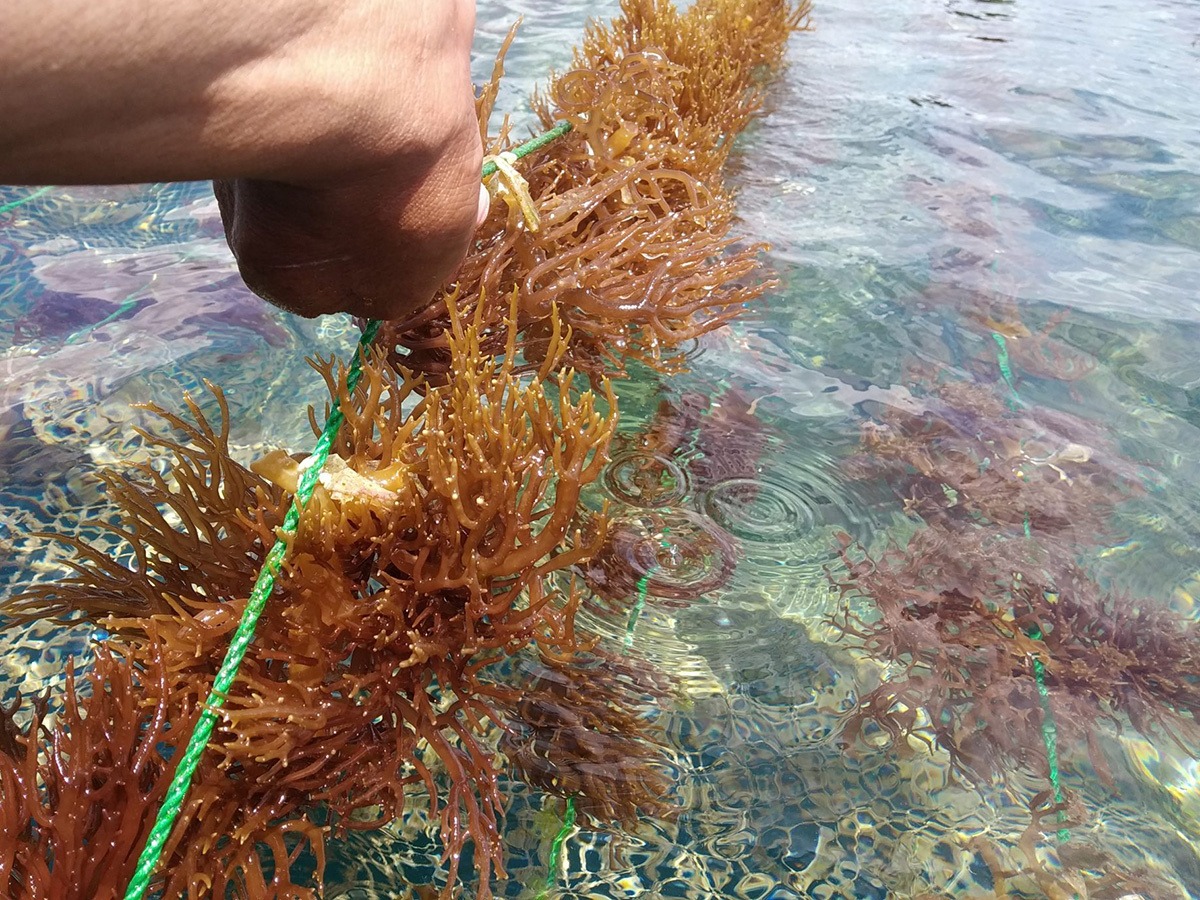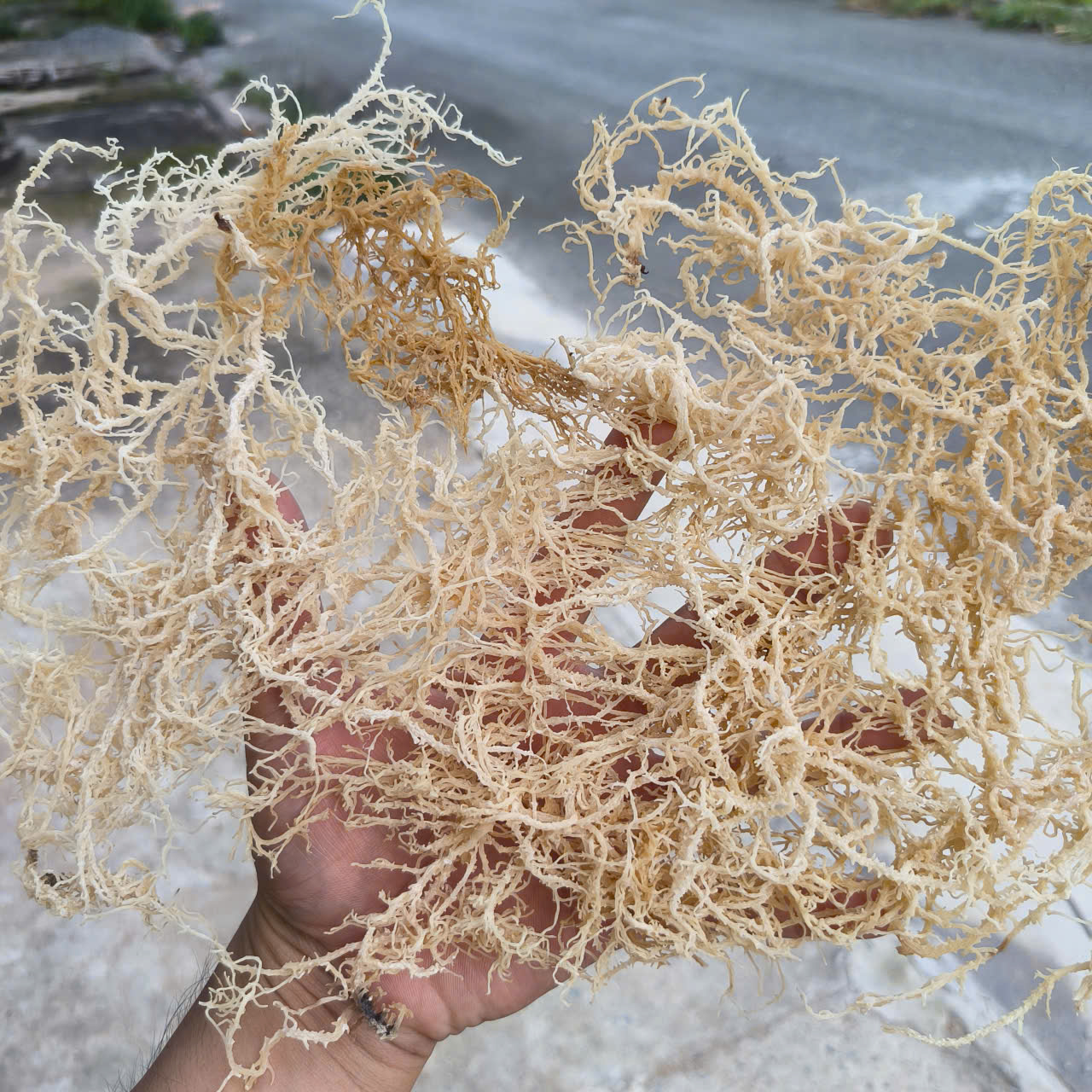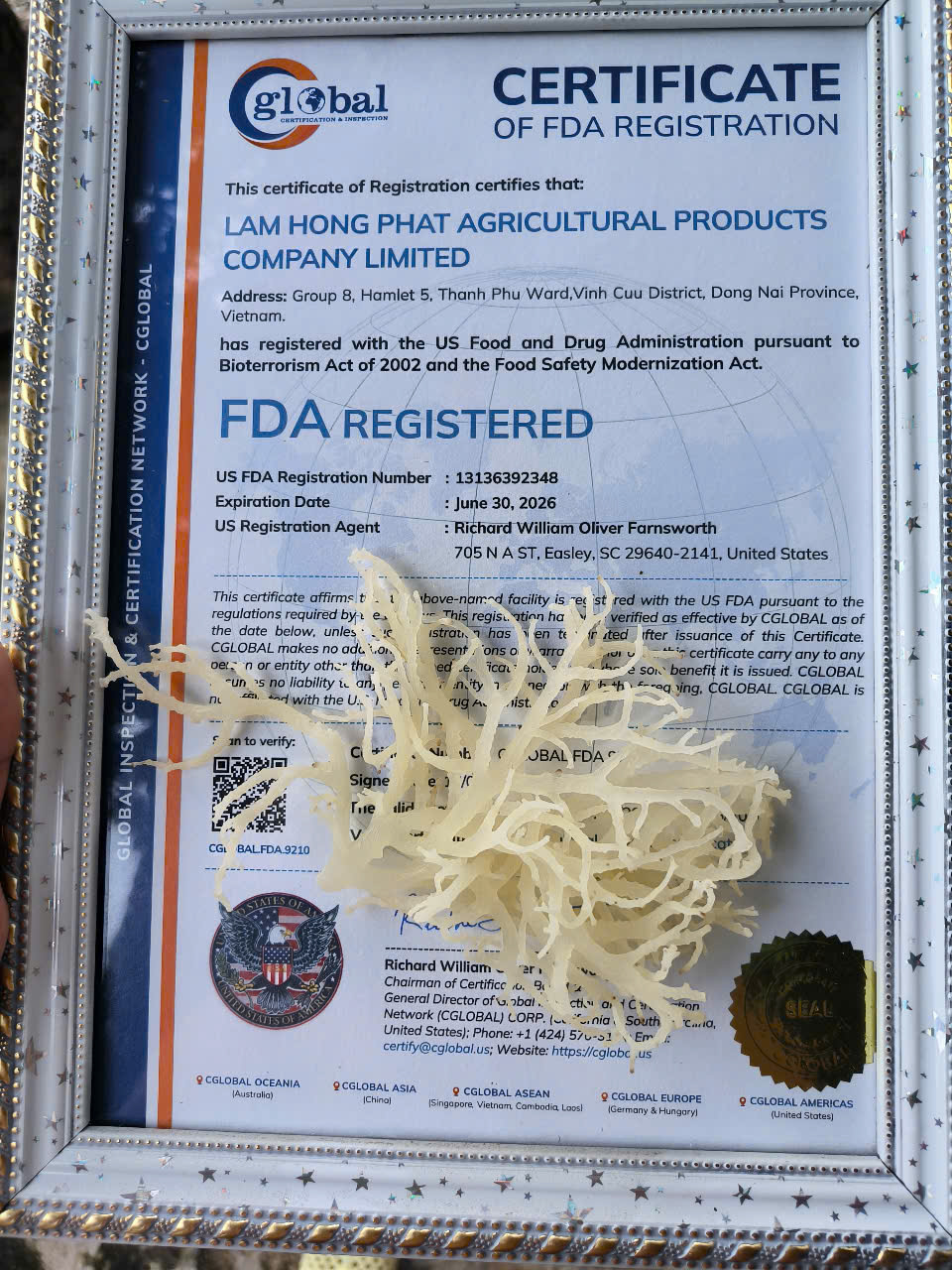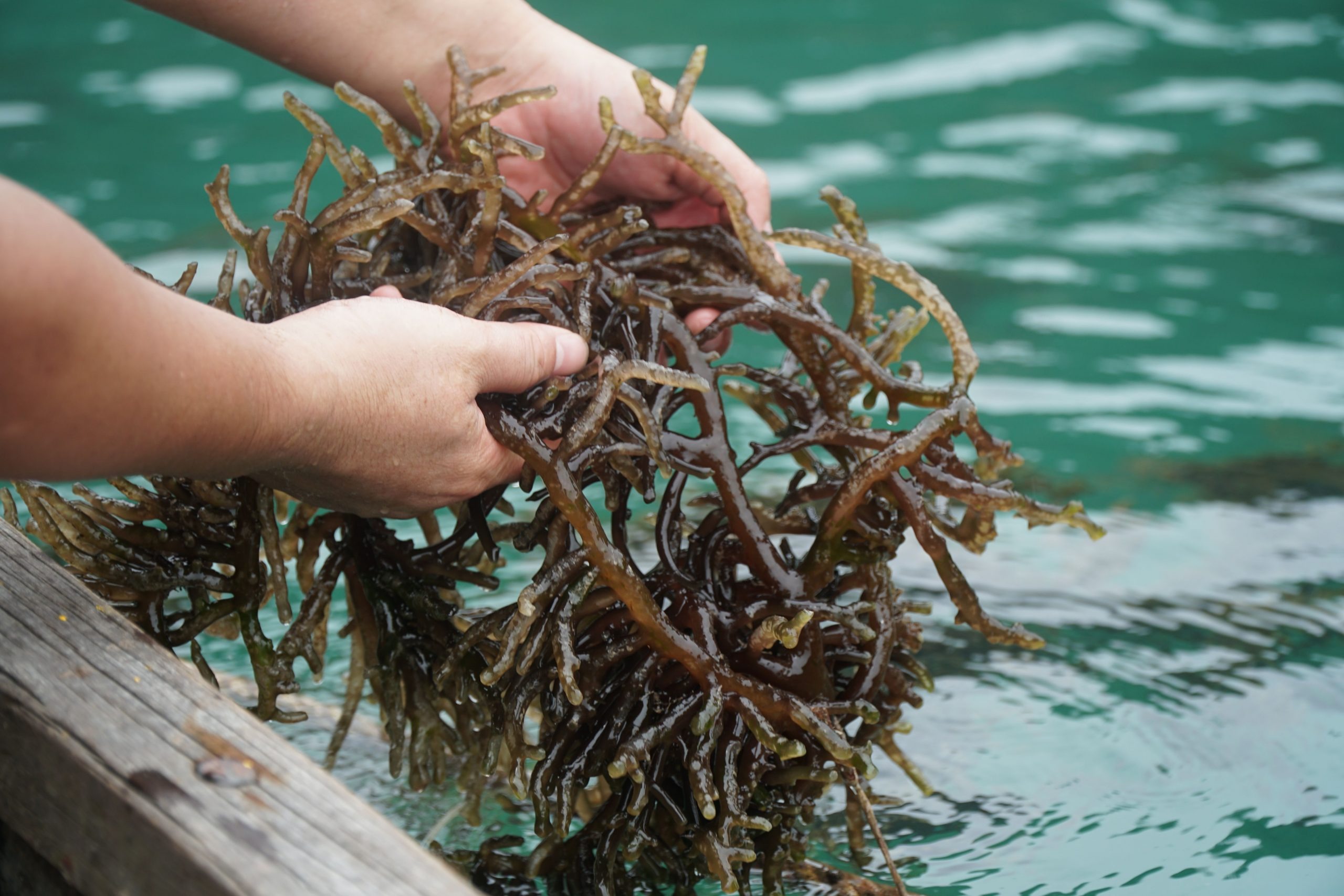Finding the right Eucheuma spinosum sourcing for manufacturers has become a priority for many businesses aiming to globalize their supply chains and pursue long-term sustainable sourcing strategies. However, many companies still hesitate, questioning whether the eucheuma spinosum supply chain for industry can truly deliver measurable value.
Understanding these concerns, in this article we will provide an in-depth analysis of the economic and strategic benefits businesses can gain by effectively optimizing their industrial Eucheuma spinosum importer relationships and building a resilient, long-term Eucheuma spinosum supply contract.
1. Why Eucheuma spinosum sourcing matters for global manufacturers
In today’s competitive global market, the ability to secure reliable raw materials is no longer just a matter of cost efficiency, it is a decisive factor in long-term business growth. Eucheuma spinosum, a seaweed species widely cultivated in Southeast Asia, has become a strategic raw material for multiple industries, including food, pharmaceuticals, and cosmetics. Its natural carrageenan content, nutritional profile, and versatile applications make it an essential ingredient in the global supply chain.
For manufacturers, finding the right eucheuma spinosum sourcing for manufacturers is not simply about purchasing raw materials. It is about building a resilient and transparent sourcing strategy that supports consistent production quality, aligns with international standards, and maximizes business value in the long term. This article explores the practical challenges and opportunities, offering strategies for manufacturers to optimize sourcing decisions and strengthen their competitive advantage.

Eucheuma spinosum at Lam Hong sea moss farm
2. Challenges in the eucheuma spinosum supply chain for industry
While demand for Eucheuma spinosum continues to rise, manufacturers face increasing complexity when managing the eucheuma spinosum supply chain for industry. Several challenges stand out:
2.1. Quality variation by region and season
Harvesting conditions, such as water purity, temperature, and local farming practices, directly affect the nutritional content and carrageenan yield of Eucheuma spinosum. Seasonal fluctuations and inconsistent farming methods can lead to significant variations in quality, making it difficult for manufacturers to standardize inputs for large-scale production.
2.2. Traceability and certification issues
Many industrial buyers require proof of origin, laboratory testing, and compliance with international certifications such as HACCP, Organic, or ISO. However, in some regions, fragmented farming systems make it difficult to ensure full traceability, which poses risks for industries that prioritize food safety and sustainability.

Export-ready Eucheuma spinosum stored at Lam Hong sea moss certified warehouse
2.3. Logistics and transportation risks
Because eucheuma spinosum is highly sensitive to humidity and microbiological contamination, improper handling during storage and shipping can compromise product quality. Manufacturers importing large volumes often encounter delays, higher inspection costs, or rejections at customs due to incomplete documentation or quality mismatches.
2.4. Price instability across supply markets
The primary producers of Eucheuma spinosum, Vietnam, the Philippines, and Indonesia, often face fluctuations in supply caused by weather, export policies, and inconsistent farming capacity. This volatility creates uncertainty for manufacturers that rely on steady input costs for budgeting and production planning.
Taken together, these challenges highlight why manufacturers must adopt a strategic approach to sourcing. Instead of focusing solely on price, businesses must evaluate suppliers on reliability, compliance, and their ability to ensure consistent quality throughout the entire eucheuma spinosum supply chain for industry.

Lam Hong sea moss products are certified for international export standards
3. Export market expansion opportunities – A look at standards in the U.S., Japan, and EU
In today’s globalized economy, expanding into international markets is no longer optional, it is a necessity for any business aiming for exponential growth. However, entry into demanding markets such as the United States, Japan, and the European Union requires compliance with a wide range of rigorous standards in areas covering product quality, production process, certifications, and communication strategies.
3.1. Regulatory standards in demanding markets
|
Region |
Mandatory standards |
Key characteristics |
|
United States (USA) |
FDA, USDA Organic, HACCP |
Strict requirements on origin, ingredients, and traceability |
|
Japan |
JAS, ISO, GMP |
High standards for purity, transparency, and procedural integrity |
|
European Union (EU) |
EU Organic, REACH, ISO, CE |
Extremely rigorous regarding preservatives, labeling, and traceability |
Notably: These markets assess not only product quality but also assess brand integrity, content transparency, sustainability philosophy, and information disclosure.

Fresh Eucheuma spinosum harvested at Lam Hong sea moss
3.2. Growth opportunities through export market expansion
Vietnam holds strong potential in natural products, agriculture, herbal medicine, functional foods, and premium handcrafted goods. However, these opportunities are only accessible to businesses that standardize operations and invest in internationally aligned communication.
|
Metric |
Domestic businesses |
Export-oriented businesses |
|
Average annual revenue |
VND 5–20 billion |
VND 50–200 billion |
|
Gross profit margin |
10–20% |
30–60% |
|
Annual growth rate |
5–15% |
25–50% |
|
Brand value |
Limited to local region |
Eligible for IPOs, franchising, and global investment |
3.3. Essential requirement: A global content mindset
To success in markets like the USA, Japan, and the EU, businesses need more than just high-quality products, they must also invest in a global content strategy that includes:
- Professionally designed and consistent brand identity.
- A website and media content tailored to the language and culture.
- Clear communication of product's origin, process, and quality commitment.
- Bilingual content marketing specific to each target market.
Content optimization is no longer optional, it's the key to reducing costs, increasing revenue, and unlocking global growth potential.
4. How to optimize a sustainable sea moss supply chain
For businesses seeking to become a reliable sea moss exporter or improve traceability, here are four strategic to build a sustainable and cost-effective supply chain:
4.1. Invest in strategic raw material regions
Enterprises should form long-term partnerships with farming cooperatives or regional seaweed producers in Vietnam, the Philippines, or Indonesia. These regions have natural advantages for cultivating organic Eucheuma spinosum to support sustainable food manufacturing. A stable supply reduces raw material costs and enables better production planning.
4.2. Apply technology in supply chain management
Leverage technologies such as blockchain, ERP systems, and traceability software to monitor every stage, from harvesting and processing to distribution. These tools help meet global demands for industrial sea moss traceability and improve internal management efficiency.
4.3. Optimize green logistics
To meet the environmental expectations of international markets, especially the European Union, companies should:
- Streamline transportation routes.
- Consolidate shipping schedules.
- Choose eco-friendly transportation methods.
This not only reduces greenhouse gas emissions but also lowers logistics costs, a critical factor for any Eucheuma spinosum sourcing for manufacturers targeting sustainable growth.
4.4. Create shared value with local communities
Build sustainable partnerships with local seaweed farming communities through training, processing upgrades, and long-term development support. This strengthens loyalty, improves quality, and adds flexibility to the supply chain.
Optimizing the sea moss supply chain is no longer optional, it's a survival strategy. A sustainable Eucheuma spinosum sourcing for manufacturers supply chain delivers environmental and social benefits while unlocking long-term economic value, positioning your business as a reliable sea moss exporter in the global market.
If you are looking for Eucheuma spinosum sourcing for manufacturers, please contact Lam Hong sea moss to get more information.






